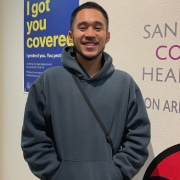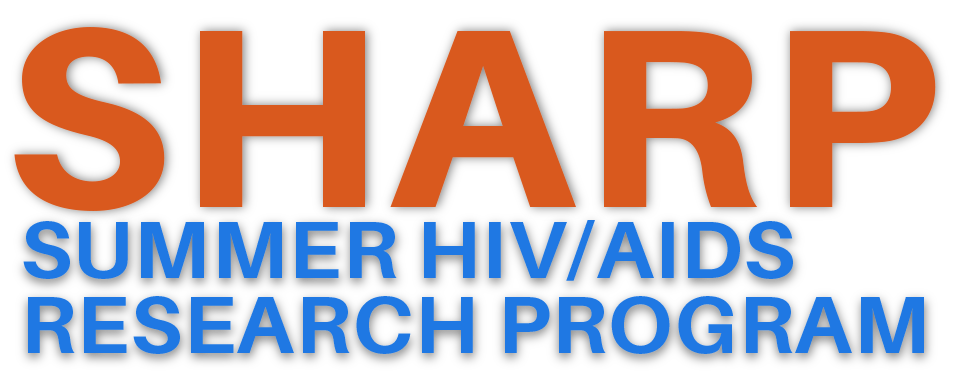-
Ally Pardo (She, Her, Hers)

Ally is a rising senior at Pitzer College in Claremont, CA. She is a combined Asian American studies and biology major, on the pre-med track. As a woman of color, Ally is passionate about working with these communities and hopes to pursue the intersections of social justice, activism, and health in the medical field.
Project: Analyzing Perceptions of the Food Access Pilot Program (FAPP): A Medically-Supportive Meal Program for Food-Insecure People Living with HIV/AIDS in Rural California.
Rural populations experience higher rates of food insecurity due to systemic barriers, namely there being a lack of proximate food sources, or the ability to access these food sources. People living with HIV and experiencing food insecurity exist at the intersection of two oppressive domains. Not only are they experiencing a lack of food security, but they’re also confronted with a lack of appropriate HIV care, including appropriate health facilities or HIV doctors. Consequently, there’s a higher prevalence of HIV-related mortality impacting rural populations. Food as medicine is a pathway that has shown to reduce the interaction of these two domains. This summer, Ally worked with mentors: Dr. Kartika Palar and Asher O’Donnell, on analyzing the Food Access Pilot Program (FAPP), which was a medically-supportive meal program for food-insecure people living with HIV/AIDS in rural California. For her research, she investigated perceived impacts of the program amongst participants. Given her positionality as a woman of color, she also determined whether racial identity was a part of people’s experiences. Ally utilized Dedoose to code transcripts and generate themes with the FAPP team. Through qualitative analysis, she discovered a positive reception of FAPP in a rural population, and no observed patterns of racial identity on participant experiences. Given that FAPP didn’t worsen racial disparities, it could be focused on supporting communities of color. For example, black and LatinX women with HIV experience higher rates of food insecurity. If a similarly-designed program to FAPP were implemented in this community, it could potentially help lessen the impact of systemic inequalities. -
Daniel Theng (He, Him, His)

Daniel is a rising senior studying biochemistry at California State University; Fresno. Daniel has research experience with computational neuroscience and deep learning research. His interests are within substance abuse and useful strategies to mitigate the harm of such practices. He plans to become a primary care physician and wants to serve in the Central Valley.
Mentors: Dr. Angelo Allen Clemenzi & Dr. Jonathan Fuchs
-
Marcus Corral (He, Him, His)

Marcus Corral is a rising senior at San Francisco State University studying public health and has been working with San Francisco Unified School District for the last three years. His passions lie in providing both mental health and sexual health education to primary and secondary school students. His interests also include: LGBTQ+ health, Latinx health, HIV prevention, and combatting environmental injustices in lower income communities.
Mentors: Dr. Pamela Murname & Dr. John SaucedaProject: Parental Factors Surrounding Sex Amongst the Latinx Community
The topic of sex still remains taboo within the Latinx community, resulting in many Latinx parents avoiding the conversation or not teaching their children about sex. Instead, many Latinx parents rely on the public education system to cover sexual education, which unfortunately isn’t common within our public education system. While religion and culture play a huge role in the lack of sexual health education within the Latinx community, our research sought to gain a greater understanding of why that is. Our main objective is to characterize how parental factors surrounding sex during adolescence are associated with condom-less sex and self reported STI’s in young adulthood amongst Latinos living in the U.S. The sample population is from The National Longitudinal Study of Adolescent to Adult Health, which is (Add Health) is a longitudinal study of a nationally representative sample of over 20,000 adolescents who were in grades 7-12 during the 1994-95 school year, and have been followed for five waves to date, most recently in 2016-18. For our exposure group, one’s closeness and relationship with their parents was measured, as well as their parents’ attitudes surrounding sex in wave 1. The outcomes, which we measured in wave 4, are self reported condomless sex, which had to have been within the last year, as well as contracting any STI throughout their life. We looked at these two outcomes as indicators of higher risk sex. In conclusion, there are meaningful associations between parental relationships in adolescence with higher risk sex in young adulthood. The findings also suggest that one’s relationship with their father has a stronger association with their sexual health than relationships with their mother. Family based or parental based interventions to promote parent – child communication is strongly encouraged for future research.
-
Mark Heringer (They , Them)

Mark is a recent San Francisco State University graduate in Psychology with a minor in Queer Ethnic Studies. They currently work in tobacco control policy and provide community health education to the LGBTQ+ community. Heringer recently attained their California HIV & HCV Test Counselor Certification to conduct testing and counseling for people experiencing homelessness in San Francisco. Their research interests include LGBTQ+ health, harm reduction and public health policy.
Project: The Impact of COVID-19 on Gender-Affirming Care among Gender Minorities Assigned Female at Birth within The PRIDE study
During the Summer HIV/AIDS Research Program 2022, Mark Heringer had the opportunity to partake in research focused on improving health for sexual and gender minority communities. Under the mentorship of Annesa Flentje, PhD, Heringer was an intern at the Sexual and Gender Minority Health Equity Lab (SGMHE) at the University of San California, San Francisco. The SGMHE lab seeks to better understand and improve health disparities among LGBTQ+ people. The SGMHE Lab study how stressors related to stigma and discrimination – collectively termed minority stress – impact mental and physical health for sexual and gender minority people. Heringer conducted quantitative research on the impact of Coronavirus Disease 2019 on the accessibility to gender-affirming care for transgender and gender expansive populations. -
Myla Lyons (She, Her, Hers)

Myla is a senior at the University of Michigan studying Biopsychology, Cognition and Neuroscience as well as Entrepreneurship Myla is passionate about the health of underserved communities. She investigates phenomena related to disease and substance use prevalence, coping and thriving in harsh environments. Myla is curious about how empowerment and locus of control can be developed using a biopsychosocial approach, for example: an active lifestyle, mental maintenance and critical consciousness. Her previous research is on exploring the relationship of substance use and HIV among gay, bisexual, young men who have sex with men in Kenya, and entrepreneurial empowerment for Detroit youth. She will pursue a PhD in Clinical Community Psychology.
Project: “Life Still Exists” Describing the HIV Risk Environment for Women Who Inject Drugs Living with HIV in Kenya
Mentors: Dr. Natasha Ludwig-Barron & Dr. John Sauceda.
Myla worked with her mentors to characterize the HIV risk environment and resiliency factors among women who inject drugs living with HIV (WWID-LH) in Nairobi, Kenya. She conducted a deductive qualitative analysis grounded in the risk environment framework, using a member-checked codebook, and also conducted a concurrent inductive analysis by identifying emergent themes. This process was carried out utilizing Atlas.ti qualitative software which allowed her to engage in consensus building with her mentors and research team. They concluded that drug use environments and practices expose WWID in Kenya to HIV risks differently, and descriptively greater, than men. Intrapersonal resiliency was described as supportive in improving quality of life by WWID-LH. Findings of intimate partner violence and limited economic opportunity highlight the needs of economic empowerment programs (such as micro-financing groups) and violence prevention (through policy and programs) be prioritized for WWID-LH in Kenya. She presented her findings at the end of the summer program, and learned valuable skills regarding how to create a scientific presentation of research findings. She continues to work with Dr. Ludwig-Barron to submit abstract proposals to two upcoming conferences: In Women Health and The College on Problems of Drug Dependence. -
Nelson Lin (He, Him, His)

Nelson is a rising senior at Brown University studying public health and neuroscience. His research interests include harm reduction and Asian American health justice. He works as a research assistant at the People, Place and Health Collective at the Brown University School of Public Health studying trauma in layperson responders to opioid overdose. He hopes to become a physician-advocate who centers community voices in public health research and policy.
Project: Hypertension control among people with prior stimulant use living with HIV
Under the mentorship of Dr. Elise Riley and her team at Zuckerberg San Francisco General Hospital, Nelson’s project analyzed the quality of hypertension care for patients living with HIV with a history of stimulant use. Both stimulant use and HIV are known to lead to hypertension, characterized by consistently elevated blood pressure. However, whether hypertension care is adequate in patients who hold both comorbidities is not well characterized. By reviewing medical charts in the electronic medical record, Dr Riley’s team along with Nelson collected data on patient demographics, physician diagnoses of hypertension, and blood pressure measures to identify patients with undiagnosed and untreated hypertension without any antihypertensive medications prescribed. They also drafted qualitative interview questions for frontline providers, including clinicians and social workers, to understand provider strategies and decision-making around hypertension control in vulnerable populations. Nelson had the opportunity to present his research through an oral presentation at the 2022 Symposium on Substance Use Research hosted by the University of Nebraska-Lincoln, and he is currently working on a short report with the intention of submitting a manuscript to a journal in spring 2023. -
Nicole Nelli (She, Her, Hers)

Nicole is a soon to be graduate from California State University, East Bay. She will be receiving her Bachelors’ in Public Health. Nicole collaborated with the Alameda County Public Health Department to investigate newly diagnosed cases of HIV among minority communities. She hopes to continue her education and attain an MPH with concentration in Epidemiology.
Project: Quality Improvement Assessment of HIV Testing at Bridge Clinic
Mentors: Jessica Bloome, MD, MPH and Jonathan Fuchs, MD, MPH.
Bridge Clinic is an addiction clinic located at Zuckerberg San Francisco General Hospital, established to treat the full spectrum of substance use disorders. Analysis on the frequency of HIV testing among the Bridge Clinic patient population had not previously been evaluated. This qualitative improvement project sought to explore the rate in which patients were being tested for HIV. HIV testing is at the center of a status neutral approach, including HIV treatment for those living with HIV, and prevention services for people who test negative. Although injection drug use is commonly identified as a risk factor for HIV transmission, other substances also impact HIV transmission. Opioids, alcohol, methamphetamine, and cocaine have all been shown to increase HIV transmission risk through different mechanisms. For instance, methamphetamine impairs judgments and reduces inhibition, which can lead to a greater risk of contracting HIV through condomless sex. Routine HIV testing and linkage to services is an important healthcare need in this population. Patient data was collected from the electronic health record through reports and chart review. Bridge Clinic providers and staff were interviewed on barriers and facilitators to testing for HIV. There is an opportunity to improve HIV testing in clinical settings offering care for people with substance use disorders, who are at higher than average risk for HIV acquisition. Developing protocols and procedures for routine HIV testing and referral to HIV care and prevention services, with attention to limiting additional time burdens on providers, may improve implementation.
